Understanding ADHD
Attention Deficit Hyperactivity Disorder (ADHD) is a mental health condition that affects many aspects of an individual’s life, particularly in terms of attention, behavior, and learning capabilities. To effectively manage ADHD, it is crucial to understand the brain areas affected and the different treatment approaches available.
Brain Areas Affected by ADHD
ADHD impacts several key regions of the brain, which play significant roles in various cognitive and executive functions. These areas include:
- Prefrontal Cortex: Involved in attention, decision-making, and impulse control.
- Basal Ganglia: Plays a role in the control of voluntary motor movements and learning.
- Cerebellum: Important for coordination of movements and cognitive processes like attention and language.
- Limbic System: Involved in emotions and memory.
ADHD affects brain areas governing core processes like attention, memory, learning, planning, and problem-solving. This can lead to chronic executive dysfunction, which impacts organization, task initiation, impulse control, and attention.
Treatment Approaches for ADHD
Treatment for ADHD often involves a combination of approaches tailored to each individual’s needs. These may include medication, behavioral therapy, lifestyle changes, and various coping strategies.
Medication
Medication can help manage the symptoms of ADHD by improving focus, impulse control, and hyperactivity. Common categories include:
- Stimulants: These are the most commonly prescribed and include medications like methylphenidate (Ritalin) and amphetamines (Adderall).
- Non-Stimulants: These include medications like atomoxetine (Strattera), which can be used when stimulants are not effective or cause unwanted side effects.
| Medication Type | Common Examples | Function |
|---|---|---|
| Stimulants | Ritalin, Adderall | Increase dopamine and norepinephrine levels |
| Non-Stimulants | Strattera | Increase norepinephrine levels |
Behavioral Therapy
Not everyone living with ADHD needs medication to manage their symptoms. In some cases, behavioral modification is the primary treatment. About 15% of children with ADHD are treated with behavior modification only (Healthline).
Behavioral therapy focuses on changing negative behaviors and developing positive habits through techniques like:
- Cognitive Behavioral Therapy (CBT): Helps children and adults manage symptoms by changing patterns of thinking and behavior.
- Parent Training: Educates parents on how to support their child using positive reinforcement and consistent discipline strategies.
Lifestyle and Coping Strategies
Developing effective ADHD coping mechanisms, such as habit formation, mindfulness training, and behavioral modification, plays a significant role in managing symptoms. Techniques such as the Eisenhower Box Technique can help categorize tasks based on urgency and importance, providing clarity for individuals with ADHD in terms of task prioritization (BeyondBookSmart).
For more information on behavioral therapies and coping strategies for ADHD management, visit our detailed guide on 12 coping mechanisms for ADHD.
Understanding the brain areas affected by ADHD and the available treatment approaches can significantly improve the quality of life for individuals living with this condition. Further reading on mental health topics, such as signs of mental health issues and types of sleep disorders, can provide valuable insights into managing other related conditions.
Coping Mechanisms for ADHD
Coping mechanisms are vital for individuals with ADHD to manage their symptoms and improve their daily functioning. Here are three essential techniques for effectively dealing with ADHD: habit formation, mindfulness training, and behavioral modification.
Habit Formation
Habit formation is a powerful tool for individuals with ADHD as it helps in establishing routines that can streamline daily tasks and activities. By creating consistent habits, one reduces the need to consciously think about beneficial behaviors, making it easier to perform tasks without requiring additional mental effort.
Example Habits:
- Daily Planner Use: Writing down tasks every morning.
- Medication Routine: Taking ADHD medication at the same time each day.
- Designated Study Area: Using the same spot and time for studying.
Benefits:
- Reduces decision fatigue.
- Ensures regular completion of essential tasks.
- Enhances time-management skills.
Mindfulness Training
Mindfulness training is a mind-body technique that involves focusing on the present moment. It can be particularly beneficial for those with ADHD by enhancing in-the-moment concentration and reducing distractions. Practicing mindfulness can help in managing impulsivity and fostering a sense of calm.
Mindfulness Techniques:
- Mindful Breathing: Focusing on breath to anchor attention.
- Body Scan: Noticing sensations from head to toe.
- Mindful Walking: Paying attention to each step and the environment.
Benefits:
- Improves attention span.
- Reduces stress and anxiety.
- Enhances emotional regulation.
Behavioral Modification
Behavioral modification involves using strategies to reinforce desired behaviors and reduce unwanted ones. This approach can include various techniques such as positive reinforcement, token systems, and behavior charts.
Techniques:
- Positive Reinforcement: Rewarding desired behaviors.
- Token Systems: Earning tokens for positive behaviors that can be exchanged for rewards.
- Behavior Charts: Visual trackers that monitor progress toward goals.
Example:
| Behavior | Reward | Frequency |
|---|---|---|
| Completing Homework | Extra Screen Time | Daily |
Benefits:
- Encourages responsible behavior.
- Provides clear expectations and structure.
- Helps in building self-discipline.
For more strategies to improve daily functioning with ADHD, consider exploring the Eisenhower Box Technique, Pomodoro Technique, and the importance of self-compassion. Understanding and implementing these coping mechanisms can significantly enhance the quality of life for individuals with ADHD.
Parental Role in ADHD Management
Parents play a crucial role in helping their children manage ADHD effectively. Understanding ADHD and identifying the challenges related to executive function are key steps in supporting and guiding children through the complexities of this condition.
Educating Parents About ADHD
Educating parents about ADHD is one of the most effective ways to help them support their children. When parents are well-informed about ADHD, they can better understand the behaviors and challenges their children face. One valuable resource, Healthline, emphasizes the importance of connecting with available support and treatments. It is essential for parents to learn about the nature of ADHD, including how it affects brain function and behavior.
For comprehensive education, parents should explore multiple facets of ADHD, including:
- Symptoms and Diagnosis
- Medication and Behavioral Therapies
- Lifestyle Adjustments and Diet
- Strategies for Academic Success
Engaging in educational workshops and joining support groups can also provide valuable insights and practical tips. Understanding these aspects helps parents create a supportive environment at home.
Identifying Executive Function Challenges
Identifying challenges related to executive function is critical for managing ADHD effectively. According to Natalie Bunner, a pediatric mental health therapist (Healthline), recognizing executive functioning issues and finding strategies to address them is essential for creating effective routines. Executive functions are cognitive processes that include working memory, flexible thinking, and self-control. Children with ADHD often struggle with these skills, affecting their ability to plan, organize, and complete tasks.
Effective strategies to address executive function challenges include:
- Creating Visual Schedules: Using charts and calendars helps children understand and follow their daily routines.
- Breaking Tasks into Smaller Steps: Simplifying tasks makes them more manageable and less overwhelming.
- Utilizing Timers and Alarms: Tools such as timers and alarms can aid in time management and task initiation.
- Developing Consistent Routines: Regular routines help children build habits and reduce anxiety.
| Executive Function Challenge | Suggested Strategy |
|---|---|
| Difficulty with Time Management | Use visual schedules and timers |
| Trouble Starting Tasks | Break tasks into smaller steps |
| Poor Organizational Skills | Create step-by-step instructions |
| Impulse Control Issues | Develop consistent routines |
Customizing strategies to fit individual needs is crucial. What works for one child may not work for another. It is important for parents to observe their child’s unique challenges and adapt techniques accordingly (Healthline).
For more information on related mental and behavioral health topics, check out our articles on sign of mental health issues and how to talk about mental health. Understanding and addressing executive function challenges can significantly improve a child’s ability to cope with ADHD, leading to better outcomes both academically and in daily life.
Executive Dysfunction in ADHD
Executive dysfunction is a significant challenge for individuals with ADHD. This cognitive impairment affects various executive functions such as organization, task initiation, impulse control, and attention. Understanding the impact of executive dysfunction on daily functioning and the specific challenges related to task initiation is crucial for developing effective coping mechanisms.
Impact on Daily Functioning
Executive dysfunction can make daily life difficult for individuals with ADHD. This impairment can lead to issues with:
- Organization: Difficulty in structuring and managing tasks efficiently.
- Task Initiation: Struggling to start tasks, leading to procrastination.
- Impulse Control: Challenges in regulating impulsive behaviors and responses.
- Attention: Maintaining focus and concentration on tasks for extended periods.
These impairments can significantly interfere with academic, professional, and personal life. For example, students with ADHD might struggle with keeping up with assignments, while professionals may find it hard to manage deadlines and responsibilities. A helpful strategy for managing these challenges is the Eisenhower Box technique, which categorizes tasks based on urgency and importance, aiding in effective task prioritization. For more information on effective coping strategies, you can read our guide on 12 coping mechanisms for ADHD.
Task Initiation Challenges
One of the most common challenges faced by individuals with ADHD is task initiation. This refers to the difficulty in starting a task, often leading to procrastination and rushed completion of work. Factors contributing to task initiation challenges include:
- Lack of Motivation: Feeling unmotivated or overwhelmed by the task.
- Fear of Failure: Anxiety about not completing the task successfully.
- Distractions: Easily getting distracted by other activities or thoughts.
To address task initiation challenges, several techniques can be employed. The Pomodoro Technique, which involves focusing intensely on a task for short periods followed by breaks, can enhance productivity and reduce the overwhelming feeling associated with lengthy tasks. Additionally, building attention and focus habits can help improve task initiation. For more coping strategies, visit our section on effective ADHD coping strategies.
| Executive Functioning Challenge | Impact on Daily Life | Coping Strategy |
|---|---|---|
| Organization | Difficulty managing tasks | Eisenhower Box |
| Task Initiation | Procrastination | Pomodoro Technique |
| Impulse Control | Impulsive behaviors | Mindfulness Training |
| Attention | Short attention span | Focus Habit Building |
Addressing executive dysfunction in ADHD requires a comprehensive understanding of its impact on daily functioning and specific challenges like task initiation. For more insights on ADHD management, explore our resources on understanding sexual dysfunction, types of sleep disorders, and more.
Effective ADHD Coping Strategies
Managing ADHD effectively requires tailored strategies that help with organization, time management, and emotional regulation. Here we’ll explore three key strategies: the Eisenhower Box Technique, the Pomodoro Technique, and the Importance of Self-Compassion.
Eisenhower Box Technique
The Eisenhower Box, also known as the “urgent-important matrix,” helps individuals categorize tasks based on urgency and importance (BeyondBookSmart). This technique provides clarity in terms of task prioritization, which can be particularly beneficial for those with ADHD who struggle with executive function challenges.
The matrix is divided into four categories:
- Urgent and Important: Tasks that need immediate attention.
- Not Urgent but Important: Tasks that are important but can be scheduled for later.
- Urgent but Not Important: Tasks that are urgent but can be delegated.
- Not Urgent and Not Important: Tasks that are neither urgent nor important and can be eliminated.
| Task Category | Description |
|---|---|
| Urgent and Important | Tasks requiring immediate attention |
| Not Urgent but Important | Important tasks for later |
| Urgent but Not Important | Delegate these tasks |
| Not Urgent and Not Important | Eliminate these tasks |
Utilizing the Eisenhower Box can simplify decision-making and help individuals with ADHD focus on what truly matters. For more strategies on managing ADHD, refer to our article on understanding sexual dysfunction.
Pomodoro Technique
The Pomodoro Technique involves working in intense focus intervals, typically 25 minutes, followed by short breaks. This time management method can be invaluable for individuals with ADHD as it enhances productivity and aids in maintaining attention.
| Pomodoro Cycle | Duration |
|---|---|
| Work Interval | 25 minutes |
| Short Break | 5 minutes |
| Long Break (after 4 intervals) | 15-30 minutes |
The short, manageable intervals make large tasks feel less overwhelming, promoting a sense of accomplishment and keeping motivation high. For additional insights, explore our section on sign of mental health issues.
Importance of Self-Compassion
For individuals with ADHD, embracing self-compassion is essential. It involves cultivating a positive internal dialogue, reducing stress, and reframing setbacks as learning opportunities (BeyondBookSmart). Self-compassion helps in managing the emotional aspect of ADHD, fostering resilience and motivation.
To practice self-compassion:
- Acknowledge Emotions: Recognize your feelings without judgment.
- Practice Mindfulness: Focus on the present without dwelling on past mistakes.
- Reframe Negative Thoughts: View setbacks as learning experiences.
Developing self-compassion helps in maintaining emotional well-being, which is crucial for overall ADHD management. Discover more about mental health strategies in our article types and treatments of anxiety disorders.
Incorporating these strategies can significantly improve the day-to-day management of ADHD, boosting productivity, and enhancing emotional health. For more ways to cope, explore our sections on types of sleep disorders and treatments for post-traumatic stress disorder.
Distinguishing Between Coping Mechanisms
Understanding the different coping mechanisms is essential for managing attention-deficit/hyperactivity disorder (ADHD). These strategies can be divided into two main categories: adaptive versus maladaptive coping strategies and problem-focused versus emotion-focused coping.
Adaptive vs. Maladaptive Coping Strategies
Adaptive coping strategies are positive ways of dealing with stress and challenges. They help to reduce psychological distress and improve overall well-being. However, a study found that these strategies did not have significant effects on overall life impairments beyond ADHD severity in adults with ADHD (PubMed Central).
| Coping Strategy | Description | Impact on ADHD |
|---|---|---|
| Adaptive | Positive techniques like exercise, time management, and seeking support | Doesn’t significantly reduce life impairments beyond ADHD severity |
| Maladaptive | Negative techniques such as substance abuse, social withdrawal, and escape | Increases life impairments and psychological distress |
In contrast, maladaptive coping mechanisms are negative ways of dealing with stress, which can lead to physical and emotional harm. These are often common in individuals who have experienced childhood trauma or abuse (Verywell Health). Maladaptive stress coping strategies like escape, social withdrawal, and resignation are positively associated with increased overall life impairments in adults with ADHD. Substance abuse, including alcohol, drugs, and painkillers, is also a common unhealthy coping mechanism with long-term detrimental effects, such as addiction and mental health issues (Positive Psychology).
Problem-Focused vs. Emotion-Focused Coping
Problem-focused coping involves addressing the problem directly and finding solutions. This strategy is highly effective in changing the situation that causes stress. For example, using techniques like the Eisenhower Box Technique and the Pomodoro Technique enables individuals to prioritize tasks and manage their time effectively.
| Coping Strategy | Description | Examples |
|---|---|---|
| Problem-Focused | Directly addressing the issue | Eisenhower Box Technique, Pomodoro Technique |
| Emotion-Focused | Managing emotions related to the problem | Mindfulness training, self-compassion |
Emotion-focused coping, on the other hand, involves managing the emotions that arise from stress rather than addressing the problem itself. Techniques like mindfulness training and self-compassion are part of this category. These techniques can help in reducing emotional distress but do not directly change the stressor.
By understanding and distinguishing between these coping mechanisms, individuals and caregivers can better navigate the challenges of ADHD. Incorporating adaptive and problem-focused strategies while avoiding maladaptive behaviors can greatly improve mental and behavioral health. For more insight on different mental and behavioral health disorders, explore our resources on understanding sexual dysfunction and types and treatments of anxiety disorders.











